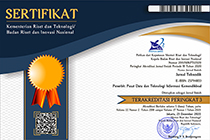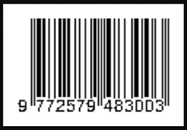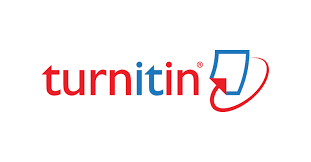Korelasi Experiential Learning dan Micro-learning dalam Meningkatkan Kualitas Pembelajaran
Keywords:
Experiential Learning, Microlearning, Learning QualityAbstract
Penelitian ini bertujuan untuk mengkaji hubungan antara kualitas pembelajaran, Micro-learning, dan pembelajaran pengalaman dalam rangka mengoptimalkan pendidikan melalui pendekatan inovatif. Analisis menunjukkan hubungan positif yang signifikan di antara ketiga variabel tersebut, yang menggarisbawahi pentingnya integrasi metodologi baru dalam pendidikan. Pertama, ditemukan korelasi yang kuat antara kualitas pembelajaran dan Micro-learning (r = 0.590**, p < 0.01). Hal ini menunjukkan bahwa Micro-learning yang efektif mampu meningkatkan hasil pembelajaran secara keseluruhan. Kedua, korelasi antara kualitas pembelajaran dan pembelajaran pengalaman juga signifikan (r = 0.726**, p < 0.01). Hal ini menegaskan dampak positif pengalaman belajar langsung terhadap pemahaman dan penerapan pengetahuan siswa. Ketiga, Micro-learning dan pembelajaran pengalaman menunjukkan korelasi yang signifikan (r = 0.694**, p < 0.01). Hal ini menunjukkan peran saling melengkapi dalam meningkatkan pengalaman belajar yang holistik. Implikasi praktis dari penelitian ini meliputi pengoptimalan pembelajaran melalui integrasi mendalam antara Micro-learning dan pembelajaran pengalaman, yang dapat mendukung pemahaman konseptual sekaligus mengembangkan keterampilan praktis siswa. Temuan ini mendorong pengembangan kurikulum berbasis bukti untuk meningkatkan kualitas pendidikan. Para pendidik dapat menyesuaikan strategi pengajaran dengan memanfaatkan Micro-learning untuk penyampaian konten yang terstruktur dan pembelajaran pengalaman untuk aplikasi di dunia nyata. Penelitian ini menekankan pentingnya metodologi pendidikan berkualitas tinggi untuk mencapai hasil belajar yang optimal dan mempersiapkan siswa menghadapi tantangan masa depan. Penelitian lanjutan dapat mengeksplorasi dampak spesifik dari berbagai format Micro-learning serta efek jangka panjang dari pendekatan pembelajaran terintegrasi terhadap keberhasilan siswa dan kesiapan karier mereka.
The study investigates the relationship between the quality of learning, micro-learning, and experiential learning designed to improve education via innovative approaches. The analysis indicates a noteworthy positive correlation among these variables, highlighting the necessity of incorporating innovative strategies in education. A significant relationship is found between the quality of learning and micro-learning (r = 0.590**, p < 0.01), indicating that effective micro-learning improves overall learning outcomes. In a similar vein, the correlation between the quality of learning and experiential learning is noteworthy (r = 0.726**, p < 0.01), underscoring the beneficial effect of practical experiences on students' comprehension and utilization of knowledge. Additionally, there is a significant correlation between micro-learning and experiential learning (r = 0.694**, p < 0.01), highlighting their synergistic contributions to enhancing comprehensive learning experiences. The results indicate that combining micro-learning with experiential learning can enhance educational outcomes by fostering knowledge comprehension and hands-on skill acquisition. The results support the development of curriculum grounded in empirical evidence to enhance the quality of learning. Educators have the ability to customize approaches by employing micro-learning for organized content dissemination and experiential learning for practical application in real-world scenarios. This study highlights the importance of creative instructional methods in attaining the best results and equipping learners for upcoming challenges. Future studies may investigate various micro-learning formats and the enduring effects of integrated approaches on student achievement and career preparedness.
References
Ali, Y. M., & Negasi, R. D. (2021). The differential impact of the experiential-entrepreneurial learning method on the entrepreneurial intentions of higher education students. International Journal of Learning, Teaching and Educational Research, 20(9). https://doi.org/10.26803/IJLTER.20.9.14
Arnidah, A., Anwar, C. R., & Aswan, D. (2023). Pengembangan Media Video Mengajar dengan Menerapkan Model Pembelajaran Case Method dan Team-Based Project untuk Perguruan Tinggi. Jurnal Ilmiah Wahana Pendidikan, 9(10), 768–779. https://doi.org/10.5281/ZENODO.8017423
Arnidah, A., D, S., Sinaga, A. V., & Aswan, D. (2022). The Development of Blended Learning in Learning Evaluation Subject in Universities in Makassar City. AL-ISHLAH: Jurnal Pendidikan, 14(3), 3289–3302. https://doi.org/10.35445/alishlah.v14i3.1296
Arriany, I., & Aswan, D. (2022). Pengembangan Blended Learning Menggunakan Model Flipped Classroom Pada Mata Kuliah Pengantar Manajemen. Jurnal Ilmiah Wahana Pendidikan, 8(12), 584–594. https://doi.org/10.5281/ZENODO.7027543
Ary, D., Jacob, L. C., Razavieh, A., & Sorensen, C. K. (n.d.). Introduction to Research in Education.
Aswan, D. (2022a). Analisis Kebutuhan Sumber Belajar LMS Pada Mata Kuliah Micro Teaching. Indonesian Journal of Learning Education and Counseling, 5(1), 11–15. https://doi.org/10.31960/IJOLEC.V5I1.1715
Aswan, D. (2022b). Pengukuran E-Learning Readiness Sebagai Upaya Penerapan Pembelajaran Abad 21 di Prodi Teknologi Teknologi Pendidikan. Jurnal Ilmiah Wahana Pendidikan, 8(23), 802–809. https://doi.org/10.5281/ZENODO.7871365
Aswan, D. (2023a). Analisis Pengaruh Literasi Digital terhadap Kemandirian Belajar Mahasiswa dalam Era Internet. Jurnal Ilmiah Wahana Pendidikan, 9(20), 949–955. https://doi.org/10.5281/ZENODO.10362490
Aswan, D. (2023b). Analisis Variasi Kebutuhan Mahasiswa dalam Modul Metodologi Penelitian. Jurnal Ilmiah Wahana Pendidikan, 9(17), 976–981. https://doi.org/10.5281/ZENODO.10362526
Aswan, D. (2024a). Analisis Kebutuhan Pengembangan Buku Interaktif Berbasis Augmented Reality (AR) untuk Meningkatkan Minat Baca Anak-Anak. Jurnal Ilmiah Wahana Pendidikan, 10(10), 916–922. https://doi.org/10.5281/ZENODO.11541481
Aswan, D. (2024b). Analisis Kebutuhan Video Tutorial untuk mahasiswa pada Mata Kuliah Media Foto. Jurnal Ilmiah Wahana Pendidikan, 10(10), 905–910. https://doi.org/10.5281/ZENODO.11541221
Bair, R., & Bair, B. (2018). A CREATIVE EDUCATION AVENUE FOR MICRO-LEARNING. Training & Development (1839-8561), 45(4).
Brown, D. (2019). Research and Educator Micro-credentials. Digital Promise Accelarating Innovation in Education, February, 1–44. www.digitalpromise.org
Creswell, J. . W., & Clark, V. Plano. L. (2018). Designing and Conducting Mix Method Research. In Methodological Research (Vol. 1st).
Creswell, J. W. (2017). Research Design: Qualitative, Quantitative Mixed Methods Approaches. SAGE Publication.
Dan-Glauser, E. S., & Gross, J. J. (2015). The temporal dynamics of emotional acceptance: Experience, expression, and physiology. Biological Psychology, 108, 1–12. https://doi.org/10.1016/j.biopsycho.2015.03.005
Ekayana, A. A. G. (2023). Development of Micro-learning-Oriented Explainer Videos on Robotics Learning in Higher Education. Jurnal Ilmu Pendidikan (JIP) STKIP Kusuma Negara, 15(1). https://doi.org/10.37640/jip.v15i1.1788
Fromm, J., Radianti, J., Wehking, C., Stieglitz, S., Majchrzak, T. A., & vom Brocke, J. (2021). More than experience? - On the unique opportunities of virtual reality to afford a holistic experiential learning cycle. Internet and Higher Education, 50. https://doi.org/10.1016/j.iheduc.2021.100804
Lee, Y. M., Jahnke, I., & Austin, L. (2021). Mobile Micro-learning design and effects on learning efficacy and learner experience. Educational Technology Research and Development, 69(2). https://doi.org/10.1007/s11423-020-09931-w
Liew, S. C., Tan, M. P., Breen, E., Krishnan, K., Sivarajah, I., Raviendran, N., Aung, T., Nimir, A., & Pallath, V. (2023). Micro-learning and online simulation-based virtual consultation training module for the undergraduate medical curriculum – a preliminary evaluation. BMC Medical Education, 23(1). https://doi.org/10.1186/s12909-023-04777-1
Liu, C., & Elms, P. (2019). Animating student engagement: The impacts of cartoon instructional videos on learning experience. Research in Learning Technology, 27. https://doi.org/10.25304/rlt.v27.2124
Mamatha, S. M. (2021). Experiential Learning in Higher Education. International Journal of Advance Research and Innovation, 9(3). https://doi.org/10.51976/ijari.932101
Meyer, C., & Clifford, M. (n.d.). Leadership for Equity Micro-Credential : Lessons Learned on Design and Implementation Micro-Credential Background Research on Micro-Credentials.
Pattaufi, P., & Aswan, D. (2022). Analisis Kebutuhan Sumber Belajar LMS Pada Mata Kuliah Micro Teaching. Indonesian Journal of Learning Education and Counseling, 5(1), 11–15. https://doi.org/10.31960/IJOLEC.V5I1.1715
Pattaufi, P., Aswan, D., & Hakim, A. (2023). The Devel
opment of Teaching Material for Blended Learning: A Strategy to Improve Students’ Creativity and Innovation in the 21st Century. Journal of Educational Science and Technology, 9(1). https://doi.org/https://doi.org/10.26858/est.v9i1.37916
Romero-Rodríguez, J. M., Ramirez-Montoya, M. S., Glasserman-Morales, L. D., & Ramos Navas-Parejo, M. (2023). Collaborative online international learning between Spain and Mexico: a Micro-learning experience to enhance creativity in complexity. Education and Training, 65(2). https://doi.org/10.1108/ET-07-2022-0259
Samala, A. D., Bojic, L., Bekiroğlu, D., Watrianthos, R., & Hendriyani, Y. (2023). Micro-learning: Transforming Education with Bite-Sized Learning on the Go—Insights and Applications. International Journal of Interactive Mobile Technologies, 17(21). https://doi.org/10.3991/ijim.v17i21.42951
Siregar, E., & Aswan, D. (2019). Development of Blended Learning for Optimization Courses in Education Technology Master Program. International Conference on Education Technology, 372, 235–241.
Siregar, E., & Aswan, D. (2022). Mobile Learning With Case Study Methods For Civic Education In Elementary School. International Conference on Innovation in Open and Distance Learning, 1234–1249. https://doi.org/10.5281/zenodo.7565944
Siregar, E., Aswan, D., & Kustandi, C. (2023). Online Learning Design Digital Guide of Social Media for Teachers. Journal of Nonformal Education, 9(1), 69–76. https://doi.org/10.15294/jne.v9i1.42092
Siregar, E., Chaeruman, U. A., & Aswan, D. (2024a). Development online course “foundation of educational technology” with a project-based learning approach. AIP Conference Proceedings, 3116(1). https://doi.org/10.1063/5.0210403
Siregar, E., Chaeruman, U. A., & Aswan, D. (2024b). Development online course “foundation of educational technology” with a project-based learning approach. AIP Conference Proceedings, 3116(1), 040047. https://doi.org/10.1063/5.0210403
Siregar, E., Chaeruman, U. A., & Aswan, D. (2024c). Development online course “foundation of educational technology” with a project-based learning approach. AIP Conference Proceedings, 3116(1). https://doi.org/10.1063/5.0210403/3294826
Smaldino, S. E., Lowther, D. L., & Russel, J. D. (2008). Instructional Technology and Media for Learning. (J. W. Johnston, Ed.; Eleventh E). Pearson.
Sudjana. (2002). Metoda Statistika. Tarsito.
Susilana, R., Dewi, L., Rullyana, G., Hadiapurwa, A., & Khaerunnisa, N. (2022). Can Micro-learning strategy assist students’ online learning? Cakrawala Pendidikan, 41(2). https://doi.org/10.21831/cp.v41i2.43387
Tanduklangi, A., Amrand, D., & Amri, C. (2018). Using Edmodo Learning Management System : Experiences of Teacher Trainees. International Journal of Information Technology and Language Studies, 2(3), 14–24.
Taylor, A. dung, & Hung, W. (2022). The Effects of Micro-learning: A Scoping Review. Educational Technology Research and Development, 70(2). https://doi.org/10.1007/s11423-022-10084-1
Trowbridge, S., Waterbury, C., & Sudbury, L. (2017). Learning in Bursts: Micro-learning with Social Media. Educause Review.
Wijaya, N. M., Yani, A., & Nandi, N. (2023). THE DEVELOPMENT OF MICRO-LEARNING-BASED ON TEACHING MATERIALS TO INCREASE STUDENTS’ ECOLITERACY. Journal of Education, Teaching, and Learning, 8.
Yuniarsih, T., Sobandi, A., Meilani, R. I., Supardi, E., Indriarti, R., & Faldesiani, R. (2022). Analysis of Micro-learning-Based Learning Media Needs: A Retrospective Study at Vocational High School. Proceedings of the 6th Global Conference on Business, Management, and Entrepreneurship (GCBME 2021), 657. https://doi.org/10.2991/aebmr.k.220701.002
Downloads
Published
How to Cite
Issue
Section
Citation Check
License

This work is licensed under a Creative Commons Attribution-NonCommercial-ShareAlike 4.0 International License.
Please download and complete the Form, Copyright Transfer, and Ethics Statement Form. The following is provided at the time of submitting the text (Upload Additional Files):









